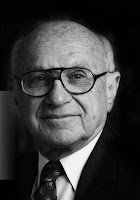In medical-pharmacology, new drugs are put through a series of test both within the laboratories as well as in the field to ensure their safety and efficacy are known before they are released for general use. Even with such rigors, it is by no means a 100% guarantee. We continue to have issues surfacing way after their their release for general use. Some of these were a result of ethically questionable treatment of information during trials to conceal information like in the case of Vioxx but many are due to our honest lack of knowledge as the human body is a very complex and we are no where near a complete understanding of although we have made great strides in recent past.
I used to discuss with my mentor Uncle John that recognizing how little we do not know about the unknown is one of the mark of maturity. Being a very curious and inquisitive teenager, I was hungry to understand all I could like reading the encyclopedia and dictionary from cover to cover. It dawned upon me one day how little I knew and it was a very humbling sensation.
Although mankind has made great stride in discovering the unknown especially in recent past, I doubt any worthy scholar would dare say that he has full understanding of everything in his field of speciality. In fact, it is sometimes such people that raise red flag to beware of the unknown.
Against the backdrop of the recent global economic meltdown, governments and central banks reacted differently and even for those that reacted similarly, the outcome varies. Unlike medical-pharmacology
discipline, economics is a relatively younger science or perhaps art where laboratory for controlled experiments for testing hypothesis is badly lacking due to the subject/object that simply cannot be contained in a laboratory for controlled studies. Most studies are a result of what I call a rear view mirror historical analysis and synthesis. Even with such studies, the limitations are vast due to its subjective nature.
Given such challenging vagaries that economists are subjected to, should they just throw caution to the wind and toss a dice instead. I think not. Rather I would venture to postulate that we need people with certain psyche where the unknown/blind corners are their best partners in crime and yet be able to apply what they deemed as appropriate in a very moderate manner.
I believe that economics has been plagued by extremism, dogmas and larger than life characters in addition to fashion and fades. It is so severe that economists are proud to trumpet their "religion" without any need for apologies. Milton Friedman, a proponent of free market and minimal government. Lord John Maynard Keynes on the other hand championed the limitations of free market and the need to for fiscal intervention. Leading the monetarist camp, we have Anna Schwartz where supply and demand of money becomes the central theme. Inflation buster like Alan Greenspan with a strong faith in the free market in pricing risks and the firm belief that central banks should titrate interest rate to control inflation. The list goes on ad infinitum.
Under such a situation, perhaps we should champion situational economics for those who that are prepared to park their egos at home, recognize that what they know constitute most probably the tip of the ice berg. Like all good sailors navigating through ice berg infested water, it is the unseen and unknown that will most probably decide their fate.
Parting thought from Ronald Rumsfleld about the middle east war "[T]here are known knowns; there are things we know we know.We also know there are known unknowns; that is to say we know there are some things we do not know.But there are also unknown unknowns – the ones we don't know we don't know."
Cheers,,,, Pete aka http://lkypeter.blogspot.com
Safe Harbor
Please note that information contained in these pages are of a personal nature and does not necessarily reflect that of any companies, organizations or individuals. In addition, some of these opinions are of a forward looking nature. Lastly the facts and opinions contained in these pages might not have been verified for correctness, so please use with caution. Happy Reading. Copyrights of all contents in this blog belongs to Peter Lye unless stated otherwise.



